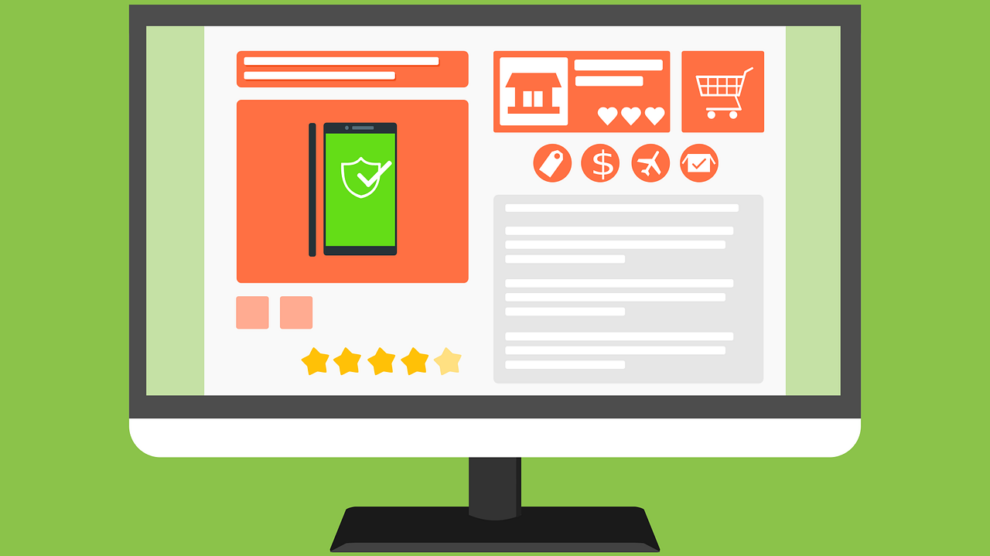In a world that is witnessing an unprecedented degree of interconnectedness, cybersecurity is increasingly becoming one of the most vulnerable aspects of businesses. This is particularly true for e-commerce companies because the ebb and flow of this sector is driven by massive consumer data, which needs to be protected at any cost.
With the emergence of Internet of Things and other technological advancements, the global digital world is expected to shrink even further. That means more people will be connected digitally and more vulnerable they will find themselves. So because of this potentially growing security glitch, retail industry has become a prime target of cybercriminals day-in and day-out.
The example of Equifax is in front of all of us. It highlights how cybersecurity in modern e-commerce landscape is of paramount importance. The company came into the radar of hackers who gleefully exploited its possible loopholes and jeopardized the personal information of over 145 million people (customers). The information included birth dates, home addresses, driving license numbers, credit card numbers, and even social security numbers.
This begs a pertinent question right away: is your e-commerce business fully protected from any future cyber-attacks?
If not, here is how you can keep your e-commerce business from being hacked:
1. Secure your site with a powerful e-commerce platform
To a great extent, you have to make your website as much safe as possible. This is one of the biggest factors that affect your store’s security. So the first line of defense starts with finding a secure and reliable platform.
However, not all platforms will promise you equal functionalities. Some might offer powerful addons or extensions but could introduce security loopholes, while others might be good in terms of hosting but also let access to the strategic source code implementation. So, it is better to consider the safety and reliability reputation of the platform.
From this perspective, there are some top names that are used widely – Shopify, Magento, WooCommerce, BigCommerce, etc. To choose the best one, you have to take an extensive research dive and select the one that is always updated to the latest release. This is because even a best platform might not be secured enough if it lacks maintenance or software updates.
2. Ensure a safe checkout process
A checkout zone is inherently unsafe whether it is an online storefront or an offline one. In view of this, some hackers are experts in intercepting the data that is being processed, entered into a checkout form and sent to a processing server. If cybercriminals get hold of this important data, they can misuse it in any way possible. So to avoid this, you have to make sure your online checkout system operates using a powerful SSL authentication.
SSL stands for Security Sockets Layer, without which, any third party can barge in and intercept the ongoing communication or transaction between your website and your users. SSL ensures the communication is encrypted, while the hackers would not be able to steal passwords or credit card numbers.
Thus obtaining and implementing an SSL certificate is a robust way to protect user data. When creating an encrypted SSL link, the first step that a user’s web browser takes is to verify that the website on the other end of the connection is who it says it is. If there is no certificate to validate, any user might mistakenly get connected to a hacker instead.
3. Secure your payment gateway with PCI compliance
As an e-commerce company, you have to be overly dependent upon credit cards and payment gateways to receive bills and payments from your consumers. That means it is essential that you process your transactions through a PCI compliant payment gateway.
Payment Card Industry Data Security Standard (PCI DSS) refers to a set of security standards designed to provide secure environment to businesses who accept, process, store, or transmit credit card information. By meeting PCI DSS Compliance, you will improve the security of card transactions and protect cardholder info from being stolen.
Furthermore, regular PCI scans on your store and server can immensely reduce the possibilities of your store being hacked. PCI scans can effectively help you identify the possible vulnerable points. This is particularly beneficial when you are hosting your online storefront all by yourself.
4. Safeguard against DDoS attacks
According to a recent data, there has been a 91% increase in the number of DDoS attacks. As per the same statistics, In Q3 2017, organizations faced an average of 237 DDoS attack attempts per month. This clearly means it’s the pressing need for e-commerce companies to protect their business from DDoS attacks.
A Distributed Denial of Service or DDoS is a hacking technique that is used to deny access for legitimate users of an online service. This type of attack can include an e-commerce website, a bank, a SaaS application, or any other type of network service.
The following methods will help you foil a DDoS attack:
- Recognize the signs: Precaution can sometimes be the best defense mechanism, so recognizing it in the first place could be mighty helpful. In this regard, investing in right technology, training, and expertise will be the best foot forward. Besides, using an anti-DDoS service is recommended.
- Virtual private networks: VPNs connect your website to an offsite secure server. This connection is completely encrypted, which helps in masking your online activity.
- Contact your ISP provider: Call your ISP in the event of the DDoS attack and request them to trace the source of the attack. You must have a backup ISP.
5. Use layered security
So far so good! A multi-layered security architecture will do rest of the protection work. An effective security design groups similar tasks and functions into modules and puts them in different layers. For example, user interface tasks can be separated from database management. The rationale behind this is if any module is attacked, it will be easier to isolate.
Layered security means hackers will have to go through them before gaining the information they want. If you can secure your contact forms, login forms, and search queries by keeping that information separate, you can easily foil SQL attacks. SQL attacks inject information into your database that lets hackers gain access to it.
It’s also important to secure the networks you use for internal operations by enabling firewalls for devices connecting to the networks. Using an HTTPS server will provide you an extra security. Hackers can also make way into your online store by intercepting your FTP passwords. So the effective solution here is to use Secure File Transfer Protocol (SFTP), which authenticates a user with a private key file.
Another layer of security can be used by bringing in compliance in order to have a tight grip on your key customer data. A good approach to do this is to outsource to a data protection officer (DPO) if you don’t want to keep a full-time internal team for it. The DPO can perform a range of responsibilities like giving advice and guidance on GDPR compliance, DPIA requirements, creating and maintaining a data processing register, etc. The truth is your organizational data as well as personal consumer data is very important that needs to be thoroughly protected. This paves way for better security features of your e-commerce business on the whole.
Conclusion
Cybercriminals are always ready to break into organizational or governmental databases as they love to misuse and manipulate data. E-commerce companies are newly added in their list of prey. That is why; online retailers have to take extra care to protect their valuable business and consumer data.





